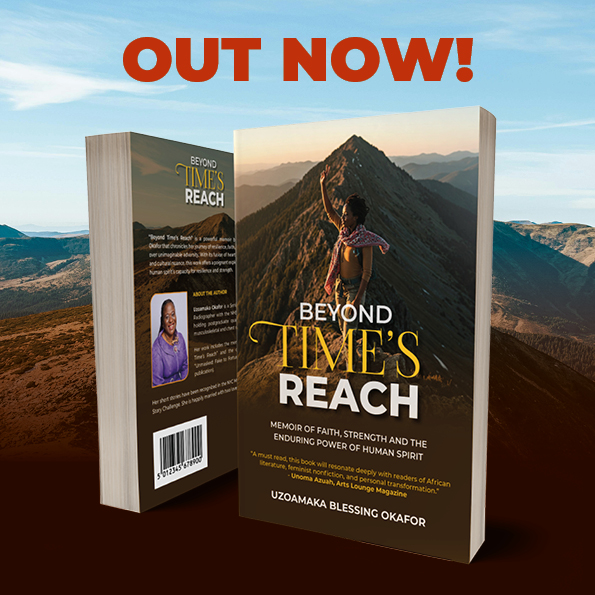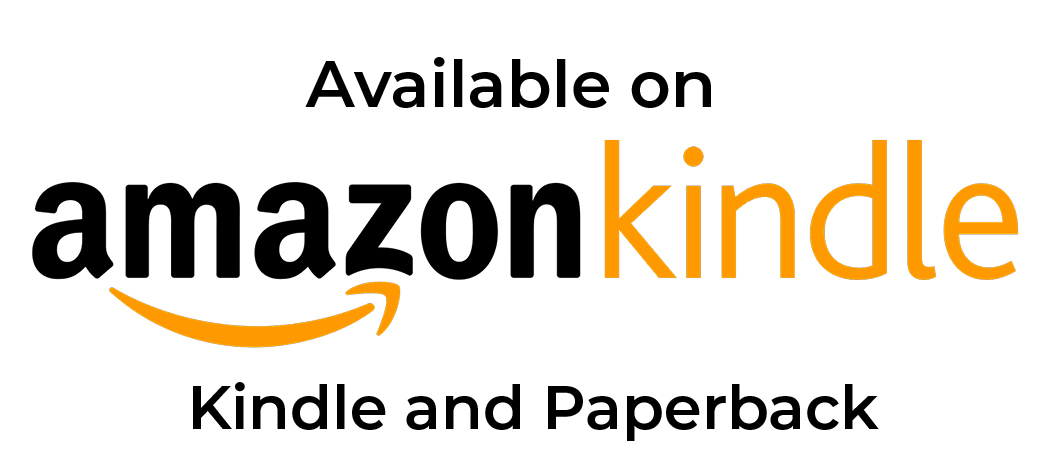"Beyond Time’s Reach"
By Uzoamaka Blessing Okafor

The memoir delves into the tender yet painful loss of her son, Uche, a moment that redefined her perspective on life. From enduring the isolating whispers of a culture that prizes motherhood above all else, to escaping the grip of a controlling spouse who weaponized tradition, each chapter builds towards a triumphant conclusion. In the end, it is a tale of courage, of a woman reclaiming her agency, finding love, and embracing the richness of life beyond the confines of societal expectations, offering a powerful message of hope.
With a narrative voice that is both evocative and candid, "Beyond Time’s Reach" offers readers a window into the intersection of personal pain and cultural pressures.
As a senior reporting radiographer with NHS England and an accomplished storyteller with a short story longlisted and earned an Honorary Mention in the NYC Midnight Challenge, Uzoamaka brings a unique perspective to the narrative. Her professional experiences, cultural heritage, and deep love for storytelling lend authenticity and richness to the memoir.
AVAILABLE IN STORES!!!
Click your preferred book store below to purchase your copy.
A Prodigious Woman finds her Voice:
A Review of Beyond Time’s Reach by Unoma Azuah
- Arts Lounge Magazine
I often wonder how best a book should be read. Through a lens, without a lens, for fun? Beyond Time’s Reach, however, tells you how to read it from the start: as a testimony of survival. In it, Uzoamaka Blessing Okafor crafts a deeply personal, emotionally resonant memoir that traces the journey of a life marked by cultural expectation, marital betrayal, quiet resistance, then rebellion and an eventual liberation. It is a chronicle of survival, but more so, a bold declaration of a woman’s right to her voice, her body, her future, her life.
From the opening pages, Okafor’s writing draws the reader into a world that is both achingly familiar and painfully unjust. The first few pages immediately sets the tone: a quiet domestic scene hides layers of unspoken pain, but the protagonist’s awakening begins not with thunder but with the still, sharp breath of self-awareness and desire. The desire to just, walk away from a suffocating existence and never look back (52). Her home, once imagined as a place of security and partnership, becomes the forge where her spirit is both tested and molded. Through vivid, lyrical prose, Okafor recounts the slow erasure of her identity within a marriage shaped by deception and control rather than companionship. The memoir is structured into five parts. Each part distills phases in Okafor’s journey. A journey that begins from a childhood rooted in love and strength, through a tumultuous marriage, to eventual healing and rediscovery in the United Kingdom. What makes the narrative especially powerful is the clarity with which the author exposes the subtle forms of violence: emotional manipulation, financial deprivation, starvation and cultural silencing, that often go unrecognized but are just as devastating and build up to physical abuse.
One of the most gripping sections lies in her account of the “family meeting,” where, instead of support, she is gaslighted and blamed by her husband’s relatives, who urged her to keep the family running, as if she were a magician. Such scenes showcase not just personal trauma but also the complicity of societal norms that enable it. Yet, Okafor’s resilience is never far from the surface. Her memories of a loving father, a comforting mother, her education, and her quiet faith provide her with tools to resist, survive, and eventually reclaim her life.
Okafor also refuses to sanitize or over romanticize her pain. Her honesty about infertility, emotional starvation, and the death of her child, Uche, are brutal and gut-wrenching. Still, these narratives are not written for pity but as a testimony to the complexity of womanhood, especially in societies where suffering is expected and endurance is celebrated as virtue.
Stylistically, the book’s strength lies in its voice. The author balances poetic introspection with narrative clarity. Her tone is confessional but never self-indulgent; it is instructive, but not preachy. Throughout, she interweaves Igbo cultural references and idioms with reflective prose, giving the memoir both a global relevance and a Nigerian soul.





